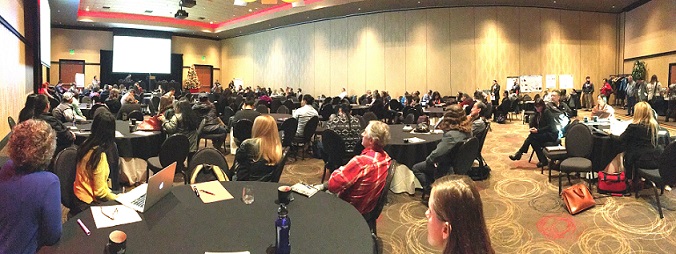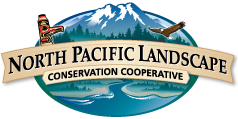Tribe and First Nations Climate Summit brings together over 150 representatives from the Pacific Northwest

Last week, over 150 members of the region’s Tribes and First Nations gathered in Northern Washington for a unique and important event. They were here to assess progress that has been made understanding and preparing for the many ways in which our rapidly changing environment affects traditional ways of life.
This 2-day event focused on four main topics -- traditional knowledges, cultural and subsistence resources, planning to support community resiliency, and policy issues.
On traditional knowledges, the discussion covered many aspects of how indigenous knowledges are shaping climate change collaborations, and ways to ensure appropriate protocols are upheld and knowledges are protected. Several case studies and guides were examined to explore the range of methodological approaches for gathering, protecting, and applying traditional knowledges in ways that protect and advance priorities of indigenous communities.
Next, the forum examined a number of cultural and subsistence vulnerability studies that provide insights on what the future might hold for a variety of plants, animals, places, and cultures that are important to indigenous communities. This discussion also included additional changes people are observing across the landscape, and a review tools for documenting change.
Tribes and First Nations have shown real leadership developing and implementing adaptation plans that lay out strategies to adapt to (and guide) these changing conditions in ways that support continued resiliency and maintain traditional cultures and values. On this topic, several examples were provided from Alaska, British Columbia, Washington, Oregon and Northern California. The aim was to 1) identify best practices, approaches, scales for vulnerability assessments and adaptation planning; 2) develop strategies for implementation actions derived from adaptation planning; and 3) discuss available resources and future needs to support planning.
Lastly, the participants had conversations on ways to maintain momentum of this work within the ever-changing policy and budget environments.
In addition to these four topics, the participants enjoyed a series of 15 “lightning talks” which highlighted a variety of studies, tools, resources, and collaborative processes available to assist ongoing work on climate adaptation and resiliency planning.
The agenda included a number of keynote addresses and insights from tribal leadership within the northwest and beyond. Regional leadership speakers included Theresa Sheldon and Terry Williams, Tulalip Tribe; Fawn Sharp, President of Quinault Indian Nation; Brian Cladoosby, Chairman of the Swinomish Tribe; Kyle Whyte, Potawatomi Nation; Sonny McHalsie, Sto:lo Frist Nations; Joe Hostler, Yurok Tribe; Eric Morrison, Alaska Native Brotherhood; David Redhorse, BIA; Don Sampson, Affiliated Tribes of Northwest Indians; and many more.
The forum was supported by the Tulalip Tribes, the North Pacific Landscape Conservation Cooperative (NPLCC), BIA’s NW Regional Office, the Affiliated Tribes of Northwest Indians, and the University of Oregon’s PNW Tribal Climate Change Network. Additional information about this event, as well as the final reports, can be found at http://atnitribes.org/climatechange/events/. Many thanks to the tribal leadership of the NPLCC and the NPLCC Steering Committee for envisioning the need for this summit and providing support to help make it a success.
Learn more about the Summit
Categories: Tribes and First Nations
